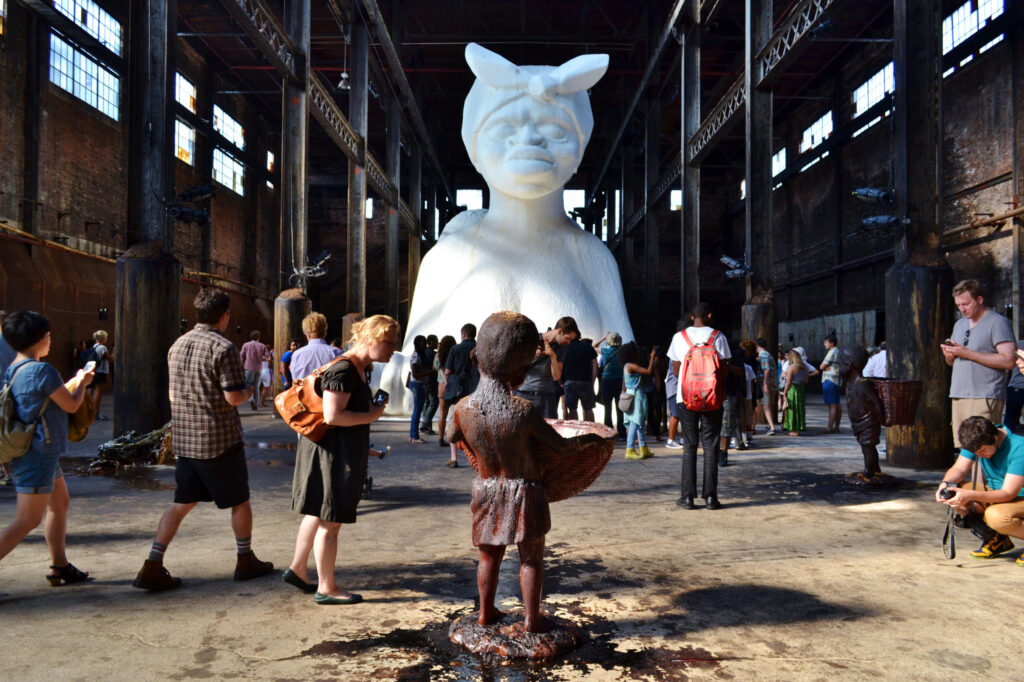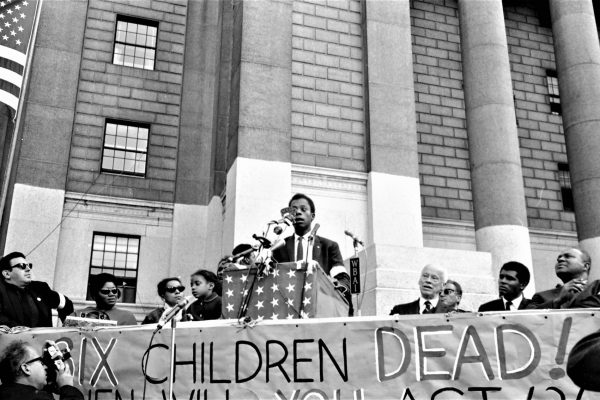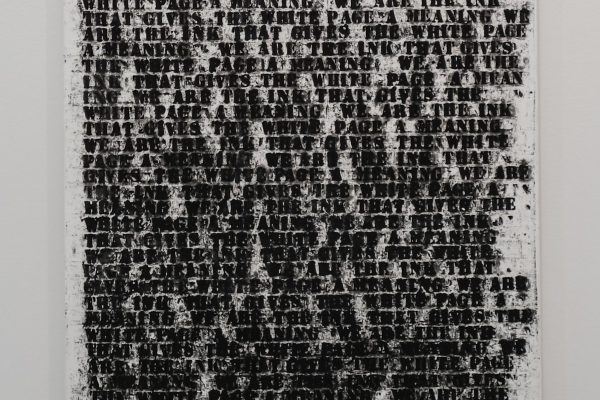Slavery is at the heart of any history of capitalism and human rights. It is the starting point for any conversation about justice today. In the second episode of BR: A Political and Literary Podcast,Walter Johnson, Winthrop Professor of History and Professor of African and African American Studies at Harvard University, talks with Adam McGee about the notion of racial capitalism, radical action and Black Lives Matter, and the question of reparations under and after Trump.
Don’t miss an episode, subscribe to BR: A Political and Literary Podcast on Soundcloud or ITunes!
Adam McGee: Could you talk briefly about your article: “To Remake the World: Slavery, Racial Capitalism, and Justice?”
Walter Johnson: It’s a piece that comes out of two essays or talks. The first is a critique of the liberal notion of justice that overhangs a lot of the scholarship on slavery. This liberal notion has become confused with a set of arguments about whether or not slavery “dehumanized” enslaved people. There is something shady about the notion of dehumanization. It shifts the question from the actions of perpetrators to the condition, human or not, of enslaved people. This is a misleading ground for analysis, it leads to analyses that view the actions of slaves qua liberal agents as actions that proved their humanity and thus contested their slavery. These analyses are imprecise. Slavery is an instrumentalization of human capacities for intelligence and fearfulness. So, in the first place, the article separates the history of slavery from this metanarrative of liberal human rights—i.e., that beneath slavery is the history of millions of peoples’ striving to emancipate themselves into the conditions of the liberal bourgeoisie of the twentieth century.
The history of slavery is the history of racial capitalism, i.e. a history of the relationship of Europe, Africa, and the Americas.
Once this metanarrative of slavery is displaced as the dominant account of the relationship of slavery to the question of justice, the question we face is: what can we put in its place? In trying to offer an answer the essay returns to the thought of W.E.B. Du Bois by way of Cedric Robinson. I think about the history of slavery as the history of racial capitalism. That is, as a history of the relationship of Europe, Africa, and the Americas. The Americas, in particular, represented a new era in the history of the world: the era both of the dawn of capitalism and the emergence of categories of racial differentiation as primary organizing categories for thinking about exploitation, solidarity, and entitlement. Finally, the piece tries to reflect on the implications of trying to derive an account of justice from the history of slavery, of trying to think about slavery as the central defining feature of modernity, and deriving a set of ideas about justice in opposition to that history of slavery.
AM: There is a social justice component in your work. You mention the Movement for Black Lives’ recently released manifesto “A Vision for Black Lives,” which you find complementary to the argument that you make. What do you think a vision of human rights would look like in practice if slavery where placed at its center? Do you see Black Lives Matter doing some version of that?
WJ: I draw inspiration and insight from that document and the other sorts of frontline strugglers who are thinking through these issues in real time. The idea is to look first at the central conflicts of our time, which seem to be police violence and mass incarceration, and then to the larger historical, economic, and racial structures of which those conflicts are features. Let’s take the point from that document, or from the prominence of Harriet Tubman in activist culture, or from the continual reference that young people today make to slavery in theorizing their own struggle. What can we learn from that?
There is something shady about the notion of dehumanization. It shifts the question from the actions of perpetrators to the condition, human or not, of enslaved people.
What I propose are six ways that a version of justice derived from and respectful to the history of slavery could supplement the human rights regime. They have to do with historical depth: thinking through a set of questions about justice that are not simply about a synchronic community. Rather, we should think of justice in relation to past predications and distributions of suffering and entitlement, thereby centering the question of gender repression and sexuality. If you try to derive your categories based on the history of slavery, you recognize that the conventional categories of political economic analysis no longer obtain. Enslaved people were both capital and labor. And the conditions of being both capital and labor were foundationally gendered and they were about reproductive invigilation and natal alienation: the social reproduction of the slaveholding class in the US was dependent upon the biological reproduction of enslaved people. Why don’t we take this set of questions around sexual violation and reproductive invigilation as central to our account of justice?
The final aspect is about trying to relate the history of the instrumentalization of human beings in slavery to the instrumentalization of nature to the radical simplification of nature that the cotton regime represents. Within the humanities and the social sciences there is an effort to restate the category of the human as our central category of analysis in relationship to climate crisis. This seems misleading, because the instrumentalization of nature is always related to the instrumentalization of people; it’s always related to questions of social inequality, what I think of as racial capitalism. The notion that we need to think more about human history and less about the history of colonialism, women, enslaved people, is misleading. This is the note on which the piece finishes.
AM: Are attempts to reframe issues of human rights and social justice more or less urgent under Trump? Are they more or less likely to gain traction?
WJ: To me thinking through the category of racial capitalism is more important then ever. A lot of the post-election analysis focused on whether Trump’s supporters are economically anxious or plain racists. This is a misleading opposition. One of the insights of Black Reconstruction where Du Bois talks about the “wages of whiteness” is to recognize that the question of economic anxiety is inextricably, ineluctably, perfectly reflective of the question of ones own sense of entitlement. And one’s own sense of entitlement in the post-slave-trade world for white people is what Du Bois calls a sense of personal whiteness: I am white and therefore I deserve. The sets of questions that we see royalling the Trump campaign around the folks who feel they have been left out or ignored are inseparable from a superintending sense that they are the people who most deserve to be included. That is inextricable from the question of race and gender identity.
Most election analysis has focused on whether Trump’s supporters are economically motivated or just plain racist. This is a misleading opposition. W. E. B. DuBois shows us that economic anxiety is inextricable from one’s own sense of racial entitlement: I am white and therefore I deserve.
AM: Your essay alludes briefly to the question of reparations. Are reparations a critical issue to you?
WJ: Reparations was for me the first idea that allowed me to understand that the metanarrative, which suggests that the history of the United States is one that runs from slavery to freedom, was misleading. It is ill-descriptive of both the existential experience of many African Americans who feel the enduring presence of slavery in their lives, but also mal-descriptive of the distribution of wealth in the United States, wealth being something that stretches across the history of slavery and freedom. The Ta-Nehisi Coates piece in The Atlantic about reparations for me is one of the most influential pieces of political thought in the past 10 to 15 years. What Coates does is takes the notion of reparations for slavery and pulls it through the modern history of slavery, and particularly through the history of the real estate market in the United States, and shows how it is that what I would call racial capitalism is manifest in so much of the structured inequality particularly around residential real-estate and the accumulation of wealth that characterizes our landscape today. You get a historically deep account of racial inequality and a structural and economic account.
The open question is whether or not the politics of reparation is going to be a grassroots politics. “A Vision for Black Lives” suggests that it will be, and that the notion of reparations for slavery and for the way in which the inequalities, categories, vulnerabilities, and the entitlements produced by the history of slavery reemerge as a bedrock for organizing. The history of reparations has not been as powerful a mode of grassroots organizing and political critique as has police violence or mass incarceration. That’s worth thinking about.
AM: As a historian, do you have a sense for one or two forms that you think would be a just way of enacting reparations?
Again, I would want to look at the “A Vision for Black Lives” document, which focuses on a notion of building black capacity and black civil society: it focuses on education, on healthcare, on the problem of mass-incarceration. It focuses on the question of wealth, and the question of wealth building is one I have considered the most. It is important to think about how middle class whiteness is a formation that was federally subsidized from the beginning of the Federal Housing Administration in 1934 with federally guaranteed home loans for whites and through the federal subsidization of the interstate highway system for the suburbanization and ex-urbanization of the United States through racially restrictive zoning laws and covenants. We live with the legacy of this today: it is everywhere. When one imagines the history of whiteness as federally subsidized around the question of homeownership, suburbanization, wealth, and the question of “urban redevelopment,” which meant tearing down black folks’ neighborhoods and destroying the social equity that existed in those neighborhoods, the question of wealth redistribution becomes central. Thinking of wealth rather than income or in addition to income helps us think historically rather than simply synchronically.
AM: One of the six points with which you conclude your essay is about how racial regimes of control were as much as anything about policing reproduction and gender. In this election misogyny has played an astonishing role. But issues that seemed to have slumbered a bit like abortion and reproductive rights have also resurged. How do you see race, gender policing, and sexual reproduction as being connected?
Trump represents a dangerous woundedness on the part of his white male supporters. Yet, what has actually been wounded is an over-augmented sense of entitlement.
WJ: I think they’re inseparable. Once we recognize that within racial entitlement lies the notion of creating a legacy—it’s a temporally dynamic relationship—we recognize that sexual control is the hinge of racial dominance: it is the modality of the reproduction of racial privilege or racial capitalist privilege over time. One way to think about this is to think about the way in which Native American history is different from African American history. Racial capitalism and the work of Du Bois leads us to think that the notion of organizing society around racial difference emerges out of the history of slavery, but that it produces all kinds of different racial formations. The racial formation in relationship to African Americans is very different in relationship to Native Americans, particularly in relation to the question of gender, reproduction, and sexuality. Slave-owners are pro-natalist in relationship to African Americans; they are proximate to exterminizationist in relation to Native American people. The expropriation of land contrasts the exploitation of labor. They want Native American people to disappear; they want African American people to reproduce.
Bringing these questions forward allows us to understand the centrality of misogyny and of white male entitlement that has characterized the rise of Trumpism. This is an absolutely critical analysis to carry forth. Part of what Trump represents is a sort of dangerous woundedness on the part of his white male supporters. Yet, what has actually been wounded is an over-augmented sense of entitlement—part of which is a sexual patriarchal entitlement. We need to think about how many of the things we see reflected in a more extreme form in Donald Trump are features of our own everyday lives, and have always been features of the everyday lives many people in the United States and those under the United States’ dominion around the world. We can find in this moment of clarification an opportunity to align ourselves thoughtfully with those who have been living under the dominion of Trumpism of one sort or another for a long time.
Don’t miss an episode, subscribe to BR: A Political and Literary Podcast on Soundcloud or ITunes!








